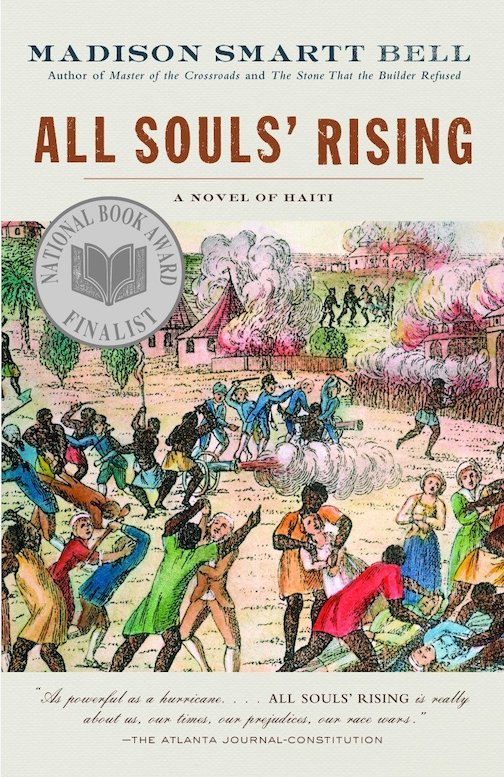Young Magic
From the stage to the page, Nashville’s first Youth Poet Laureate shines
Lagnajita Mukhopadhyay plays five instruments, writes and records music, and loves e.e. cummings. She will graduate from Nashville’s Hume-Fogg Academic Magnet High School in May. And she just published her first book of poetry at age eighteen. this is our war sings with language that is as lush as it is precise, by turns joyful and solemn. Mukhopadhyay explores a range of themes, including youth and innocence, family origins, new love, and responsibility to others. Whether light-hearted or achingly raw, each poem celebrates some specific way of being alive.
 Mukhopadhyay was born in Kolkata, India, and moved to the United States with her parents when she was six years old. She wrote fairy tales as child, and songs and poetry as she got older. In the fall of 2014, her parents encouraged her to apply to the Youth Poet Laureate program, a project spearheaded by Southern Word and funded in part by the Nashville Mayor’s Office, Metro Arts Commission, Nashville Public Library, Metro Nashville Public Schools, and Urban Word. The program, then kicking off its first year, aims to identify young writers dedicated to the craft of poetry and committed to civic engagement, diversity, and tolerance.
Mukhopadhyay was born in Kolkata, India, and moved to the United States with her parents when she was six years old. She wrote fairy tales as child, and songs and poetry as she got older. In the fall of 2014, her parents encouraged her to apply to the Youth Poet Laureate program, a project spearheaded by Southern Word and funded in part by the Nashville Mayor’s Office, Metro Arts Commission, Nashville Public Library, Metro Nashville Public Schools, and Urban Word. The program, then kicking off its first year, aims to identify young writers dedicated to the craft of poetry and committed to civic engagement, diversity, and tolerance.
The application process culminated in spoken-word performances from three youth poets in a celebration of youth voices called State of the Word. Mukhopadhyay performed “this is our war,” the final poem in her new collection. The poem shows her skill in pointing toward great human struggle while challenging us to dig deep inside for self-betterment:
I find it hard to believe that we are still fighting
each other when each other is all we’ve got,
and it may seem
like the odds are the mountain against us
but that intrinsically
means a lot.
It’s a call to action that reverberates throughout the book. “We’re all people and we shouldn’t be tearing each other down,” she told Chapter 16 in a recent interview. “We should be building each other up. It’s all of our war, not just the people in the Middle East, or the people being enslaved. It’s all of us. We’re all living in this world where these atrocities still go on.” It was her very first spoken-word performance. At the end of the night, Mukhopadhyay was named the first Youth Poet Laureate of Nashville.
 Benjamin Smith, the executive director of Southern Word, has worked closely with Mukhopadhyay. “This role is for someone who can effectively represent a youth voice and tell us where young people are at. We look for writers with a certain boldness, and someone committed to community engagement and diversity.” As part of the program, the poet laureate is paired with a mentor. In this case, Mukhopadhyay worked with poet and former educator Bill Brown, who provided prompts and model poems, meeting with her every few weeks to go over drafts.
Benjamin Smith, the executive director of Southern Word, has worked closely with Mukhopadhyay. “This role is for someone who can effectively represent a youth voice and tell us where young people are at. We look for writers with a certain boldness, and someone committed to community engagement and diversity.” As part of the program, the poet laureate is paired with a mentor. In this case, Mukhopadhyay worked with poet and former educator Bill Brown, who provided prompts and model poems, meeting with her every few weeks to go over drafts.
Brown says, “From the beginning I knew that Lagnajita was quite remarkable for a seventeen-year-old. She has a clear, individual writer’s voice, an eye for detail and love of language.” She arrived at their second meeting with ten new poems, and she wrote more than fifty during their time together. Early on, her biggest challenge was making her ideas concrete. “Bill taught me how to convey a message not just in abstractions but also through real and tangible images that anyone could see and know what I’m trying to say,” Mukhopadhyay says. “He basically changed my life.”
It may sound hyperbolic, but Mukhopadhyay is sincere. She sees the role of Poet Laureate as one of responsibility, both as a youth and as a young woman of color. “It’s so important to have the platform to change people, or make them think, or make them feel, which is even more important than making them think,” she says. “Most people don’t get to do these things just by entering a competition. People have to work hard for this, and often they are not people of color.”
Memories of India pepper the collection. From “lonely evening rickshaw rides / back from dance class,” to “black crows from the / bazaar flying in through / cage glass windows,” she reflects on her twin homes of Kolkata and Nashville, handling each with equal reverence. She wrote some of her poems in Bengali, and they are translated to English in this is our war. “By putting words in Bengali, I not only stay true to my roots, but it gives the poem a different flavor,” Mukhopadhyay says. “Sometimes the expression of thought just sounds so beautiful in Bengali.”
Brown says, “Lagnajita’s keen lyrical ear and focused listening continue to amaze me.” Her songwriting background comes into play here, and it shows in Mukhopadhyay’s performances, as well. During her year as Youth Poet Laureate, she performed at Mayor Karl Dean’s final State of the Metro address, at the opening of the Nashville Public Library Studio, and at Mayor Megan Barry’s inauguration, to name just a few. “When I started going out performing,” Mukhopadhyay says, “I fell in love with rhythm, the way words sounded, and meanings and messages communicated when said out loud and not just read on the page.”
 Mukhopadhyay’s term has ended, and Nashville now has a new Youth Poet Laureate, Cassidy Martin, a sophomore at Nashville Big Picture High School. Darnell Arnoult, author and long-time advocate of youth writers, notes, “Whether they publish or not, these young writers are learning to express themselves and learning the power of their own voice. They are learning that adult authors and audiences can take them seriously.”
Mukhopadhyay’s term has ended, and Nashville now has a new Youth Poet Laureate, Cassidy Martin, a sophomore at Nashville Big Picture High School. Darnell Arnoult, author and long-time advocate of youth writers, notes, “Whether they publish or not, these young writers are learning to express themselves and learning the power of their own voice. They are learning that adult authors and audiences can take them seriously.”
The Youth Poet Laureate program makes us aware that teenagers are full of ideas and wisdom, and that we have opportunities to listen to them every single day. According to Smith, Mukhopadhyay has a passion for improving the world. “She realized that she had a platform for a year to make a statement and to be in front of people speaking,” he said. “She was conscious that she had this limited window to make an impact.”
“Everyone has a voice, and they need to be heard somehow,” Mukhopadhyay says. “I think this program is a savior because people start listening to poets once they’re accomplished. I was in my little bedroom writing songs, and no one would listen to them. It’s so important to have the platform to change people or make them think or make them feel.”
After high school, Mukhopadhyay plans to stay in Nashville and has applied to colleges in the city. She plans to double-major in communications and English, with a minor in theater.
[To read a poem by Lagnajita Mukhopadhyay, click here. To read Mukhopadhyay’s prize-winning essay in the 2015 Nashville Reads contest, click here.]

Erica Ciccarone is an independent writer living in Nashville. She holds an M.F.A. from the New School and contributes regularly to several arts magazines and to Nashville Public Radio. .


